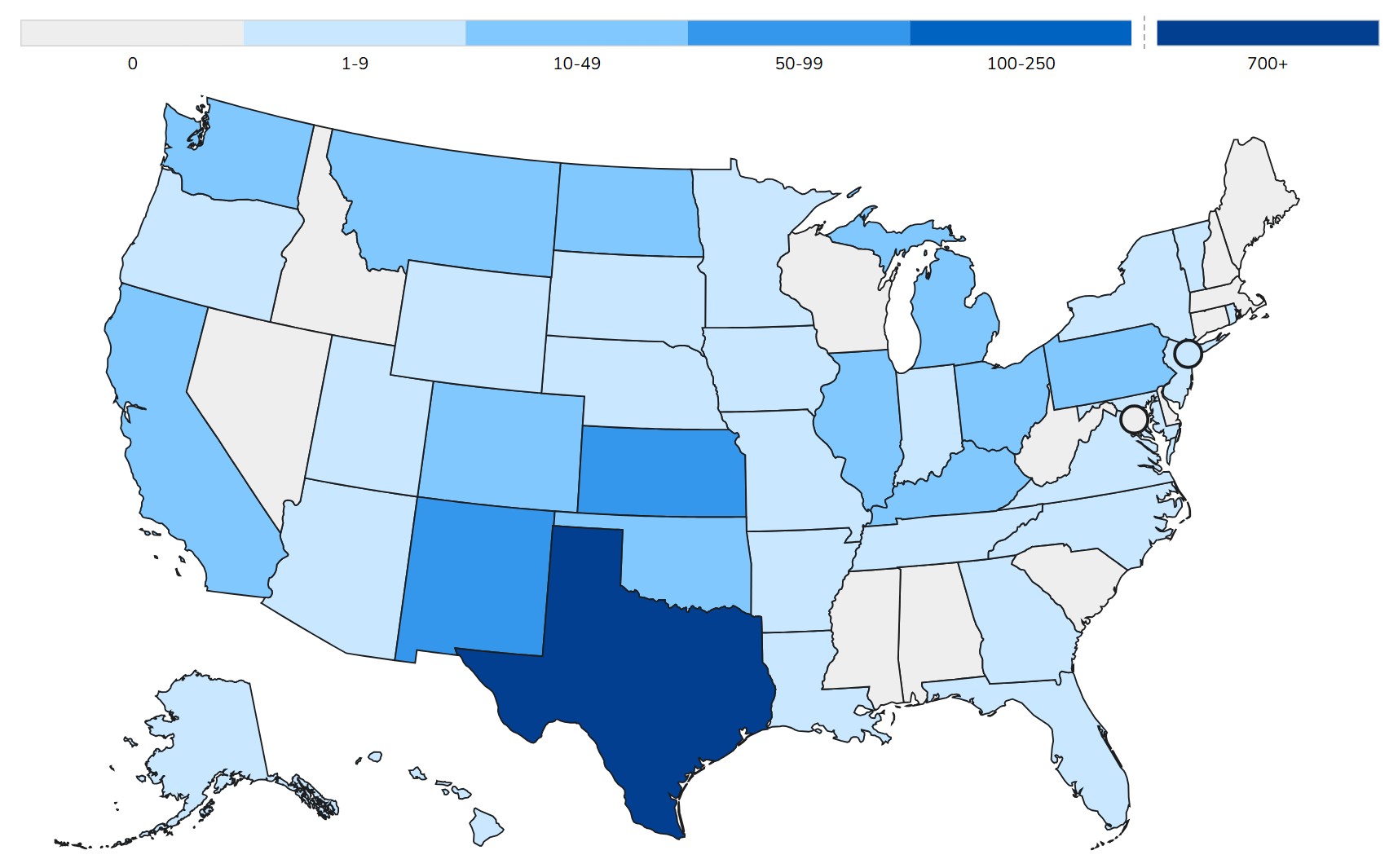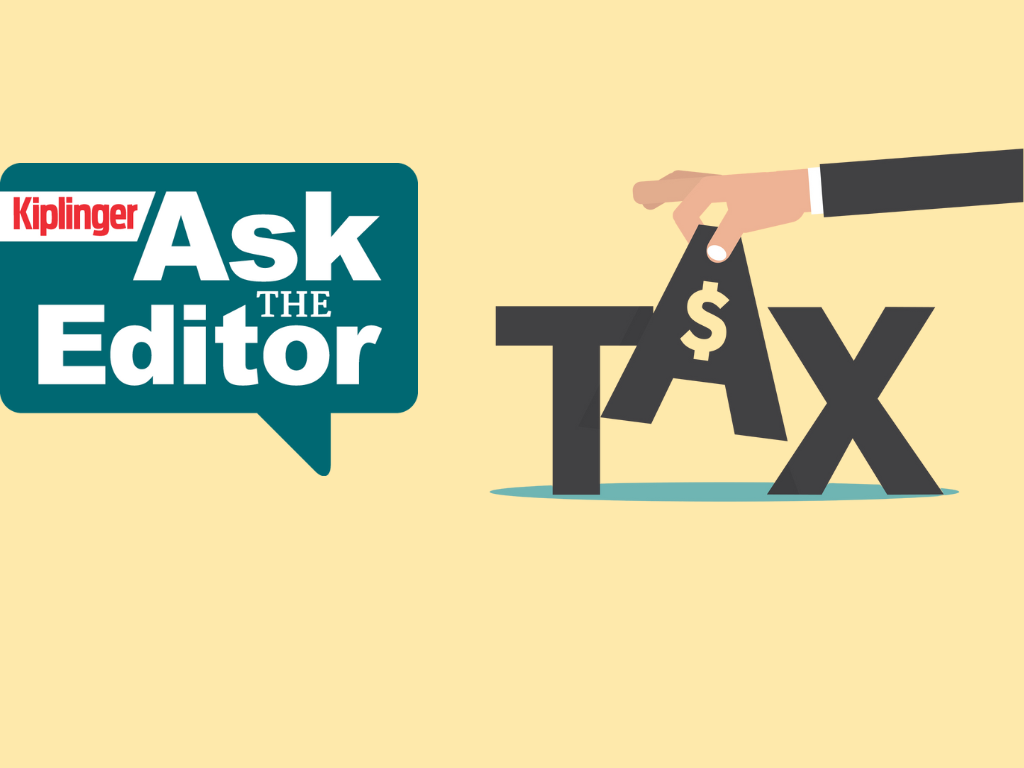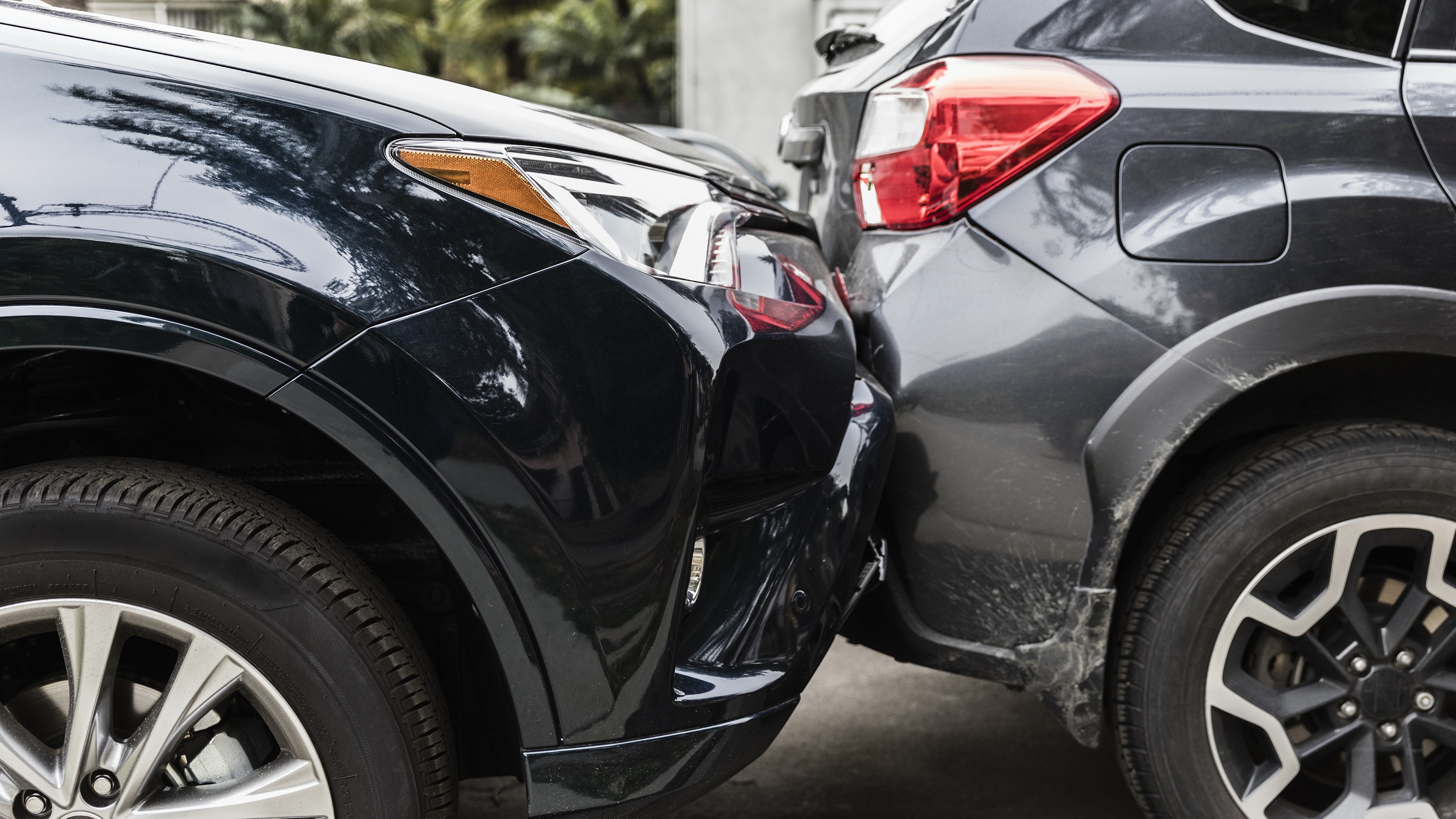This Measles Side Effect Can Undo Years of Immunity: Are You Safe?
Older adults may lack protection from measles, which can cause their immune systems to "unlearn" previous defenses to infectious diseases. Here's what to do.


Profit and prosper with the best of Kiplinger's advice on investing, taxes, retirement, personal finance and much more. Delivered daily. Enter your email in the box and click Sign Me Up.
You are now subscribed
Your newsletter sign-up was successful
Want to add more newsletters?

Delivered daily
Kiplinger Today
Profit and prosper with the best of Kiplinger's advice on investing, taxes, retirement, personal finance and much more delivered daily. Smart money moves start here.

Sent five days a week
Kiplinger A Step Ahead
Get practical help to make better financial decisions in your everyday life, from spending to savings on top deals.

Delivered daily
Kiplinger Closing Bell
Get today's biggest financial and investing headlines delivered to your inbox every day the U.S. stock market is open.

Sent twice a week
Kiplinger Adviser Intel
Financial pros across the country share best practices and fresh tactics to preserve and grow your wealth.

Delivered weekly
Kiplinger Tax Tips
Trim your federal and state tax bills with practical tax-planning and tax-cutting strategies.

Sent twice a week
Kiplinger Retirement Tips
Your twice-a-week guide to planning and enjoying a financially secure and richly rewarding retirement

Sent bimonthly.
Kiplinger Adviser Angle
Insights for advisers, wealth managers and other financial professionals.

Sent twice a week
Kiplinger Investing Weekly
Your twice-a-week roundup of promising stocks, funds, companies and industries you should consider, ones you should avoid, and why.

Sent weekly for six weeks
Kiplinger Invest for Retirement
Your step-by-step six-part series on how to invest for retirement, from devising a successful strategy to exactly which investments to choose.
Measles may seem like a disease of the past. Indeed, the highly contagious virus was declared eradicated in the United States in 2000 after a full year had passed without any infections. But times have changed.
By July 9, 2025, there had already been 1,288 reported cases of measles across the United States, according to data from the CDC. This is the highest number of cases since 1992, eight years before the disease was eradicated in the U.S.
While these measles cases have resulted in only three reported deaths, the shocking reality is that this highly contagious virus can have more health consequences than many people realize. One of the most surprising residual effects from the virus is that it may leave measles victims more susceptible to other health issues in the future, a phenomenon known as immune amnesia.
From just $107.88 $24.99 for Kiplinger Personal Finance
Become a smarter, better informed investor. Subscribe from just $107.88 $24.99, plus get up to 4 Special Issues

Sign up for Kiplinger’s Free Newsletters
Profit and prosper with the best of expert advice on investing, taxes, retirement, personal finance and more - straight to your e-mail.
Profit and prosper with the best of expert advice - straight to your e-mail.
The good news is that most people are protected against measles, as two doses of the MMR (measles, mumps, rubella) vaccine are standard practice in the U.S. for children. A single dose of this vaccine is 93% effective against measles, while two doses are 97% effective, according to the CDC.
However, not everyone has the protection they need. Some older adults may have received a weaker version of the vaccine as children, or others may have gradually lost some of their immunity over time. Here's what you need to know about the vaccine booster, immune amnesia and whether you require extra protection to reduce your risk.
Where measles is spreading
Measles is one of the most contagious diseases in existence, so it is not surprising that cases are widespread throughout the United States. In fact, confirmed measles cases have been reported in 39 different states this year (see map below).
Around 88% of all confirmed measles cases have been associated with outbreaks, with 27 outbreaks reported in 2025 compared with 16 in 2024. Measles cases have also been reported in other jurisdictions, but the CDC counts only confirmed cases in its tracker.
Those who are concerned can check the CDC's website for real-time updates provided by individual states, or can sign up for notifications from the CDC's Health Alert Network (HAN). Local state Departments of Health also offer more details on local outbreaks, including a large-scale outbreak in West Texas, where 735 cases have been confirmed since late January.

Measles has a frightening side effect: immune amnesia
In the pre-vaccination era, the majority of children were infected by measles before age 15, with an estimated three to four million people infected each year. The measles was a common household disease, with most people aware of its side effects.
Vaccination significantly reduced the number of cases, saving thousands of lives. It also made people less aware of the serious risks of measles — including a frightening condition called immune amnesia.
"Immune amnesia is a well-known but still underappreciated phenomenon of measles infection," explained Dr. David Nguyen, infectious diseases specialist for children and adults at Rush University System for Health.
Virtually all individuals affected with measles develop at least some immune amnesia, according to Michelle Barron, MD, a professor of infectious diseases in the University of Colorado Department of Medicine. However, this condition is more likely to occur in a more severe form in children affected by the disease. Sadly, when this condition worsens, the consequences can be dire.
"Immune amnesia has to do with the phenomenon of losing parts or all of your adaptive immunity," explained Dr. Amy Edwards, associate professor of pediatrics at Case Western Reserve University School of Medicine and Senior Attending Physician, Pediatric Infectious Diseases.
"We're born with relatively inexperienced immune systems," Edwards said. "As we fight infections, our immune system stores information about these infections and how to best fight them, which makes them easier to fight in the future. Immune amnesia destroys all or part of this ‘memory’, essentially resetting the immune system to its less experienced form."
Immune amnesia is unique to measles and is related to the way the virus interacts with the body.
"As far as we know, this is the only virus that induces immune amnesia in this way," explained Catherine Troisi, PhD, infectious disease epidemiologist at UTHealth Houston. "The measles virus “takes over” antibody-producing memory cells. Recently published research showed that between 1 and 7 out of every 10 of these memory cells are reprogrammed and start making antibodies to the measles virus rather than to the other viruses or bacteria from which they previously protected you."
Troisi explained that once your memory cells are altered, you are far more susceptible to other serious conditions, including those you'd been vaccinated against previously.
"Now you have fewer antibodies protecting you, leaving you at risk of infections to which you were previously immune," Troisi said. "For example, if you had 100 antibodies protecting you against whooping cough before getting measles, you now may have only 50, leaving you at higher risk of getting re-infected. Either re-vaccination or reinfection may be required to rebuild your immune system."
According to Troisi, these secondary infections may have fatal consequences. "Before the advent of the measles vaccine, doctors were well aware of this danger," she said. "In fact, there is evidence that, when measles was prevalent, up to half of childhood deaths from infectious diseases were related to immune suppression that can follow measles infection."
The good news. According to Troisi, "Not getting infected with the measles virus prevents this type of amnesia from occurring. And the best way to prevent getting infected is to get vaccinated."
Measles vaccine boosters are recommended for some groups
While modern measles vaccines are highly effective, older versions of the vaccine may provide inadequate protection.
If you were vaccinated in the 1960s
"Some people who received the old, inactivated measles vaccine between 1963 and 1967 may benefit from a booster with the live MMR vaccine," advised Dr. Elizabeth Hammershaimb, an infectious disease pediatrician with the University of Maryland Children's Hospital and an assistant professor at the University of Maryland School of Medicine.
About 600,000 to 900,000 people in the United States received the inactivated vaccine, according to Johns Hopkins. Still, anyone vaccinated during that period should check their vaccine records to confirm which version of the shot they received.
Note that some institutions also recommend people immunized in 1968 get the booster. That's because the rollout of the improved vaccine may not have started on the first day of that year.
Immune-compromised people and other groups
Certain other groups may also benefit from an additional dose of the MMR vaccine as well. "People with a history of immune-compromising conditions, and nonpregnant women of childbearing potential without evidence of immunity, may also benefit from a booster on a case-by-case basis," Dr. Hammershaimb said.
Born before 1957
Johns Hopkins also explains that older adults born before 1957 are presumed to have natural immunity as they were likely exposed to measles before vaccines became available. However, Yale Medicine recommends that high-risk individuals, including healthcare workers born before that time, consider a booster if they do not have proof of immunity.
Can you check your immunity? Should you?
If you are concerned about whether you have the necessary protection against measles, there are steps you can take to find out.
"You can get measles titers done and that will show if you are protected," explained Dr. Amy Edwards, FAAP, an associate professor of pediatrics at Case Western Reserve University School of Medicine.
MMR titer tests are simple blood tests that confirm whether you are immune to measles due to other vaccination or prior infection. Titer tests are quick and affordable and can be obtained through your healthcare provider or through third-party labs like Labcorp.
"A measles titer test, which checks for immunity to measles, can typically cost around $83 to $129," advised Dr. Peter Zimmerman, PhD, professor of pathology at Case Western Reserve University. Unfortunately, Dr. Zimmerman said that health insurance typically does not cover titer tests.
Dr. Hammershaimb also explained that "antibodies may not represent the full picture of a person's immunity against measles. Low titers may be a clue to low immunity to measles, but there are other pieces of the immune system that are more difficult to measure and that may provide some protection even if antibody levels are low."
Because of these downsides, Dr. Edwards believes titer testing is more hassle than just getting the shot, especially as data has shown that "people who (for various reasons) get more than 2 doses of the MMR aren’t at increased risk of adverse reactions to the vaccine so it appears to be safe, though those studies are small."
How much does the measles booster cost?
If you are concerned about your immunity levels and want to get an MMR booster, the good news is that most private insurance policies cover the vaccine with no out-of-pocket costs, even if you have not met your deductible. Medicare Part D will also cover the vaccine for those enrolled.
For the uninsured, vaccines are widely available at walk-in clinics, including at drugstores like CVS and Walgreens. These vaccines are relatively affordable, as Bettercare reports the average cost per dose is around $90 to $125, making the cost for the complete series of two shots $180 to $250.
Get your measles booster ASAP if you need it
If you doubt your immunity to measles, do not wait to act. Before the introduction of the vaccine, an estimated 48,000 people were hospitalized annually, with 400 to 500 measles-related deaths each year. There's no reason to take that chance or risk losing the memory your immune system has developed when you can virtually eliminate your risk with a simple, widely available shot today.
Read More
Profit and prosper with the best of Kiplinger's advice on investing, taxes, retirement, personal finance and much more. Delivered daily. Enter your email in the box and click Sign Me Up.

Christy Bieber is an experienced personal finance and legal writer who has been writing since 2008. She has been published by Forbes, CNN, WSJ Buyside, Motley Fool, and many other online sites. She has a JD from UCLA and a degree in English, Media, and Communications from the University of Rochester.
-
 Ask the Tax Editor: IRAs
Ask the Tax Editor: IRAsAsk the Editor In this week's Ask the Editor Q&A, Joy Taylor answers questions on IRAs
-
 At-Fault States Where No-Fault Insurance Still Applies
At-Fault States Where No-Fault Insurance Still AppliesThink you live in an at-fault car insurance state? These four still have some tricky no-fault insurance laws you should know about.
-
 My wife wants us to retire at 65 for Medicare, but I'm ready now.
My wife wants us to retire at 65 for Medicare, but I'm ready now.I'm 62 and want to retire, travel and have fun, but my wife says we should get Medicare first. We ask wealth advisers for help.
-
 4 Pro Tips for Successfully Scaling the Medicare Mountain
4 Pro Tips for Successfully Scaling the Medicare MountainAttempting to conquer Medicare without a plan is risky. The safest route requires a thorough understanding of your options and never leaves decisions to chance.
-
 For More Flexible Giving, Consider Combining a Charitable Remainder Trust With a Donor-Advised Fund
For More Flexible Giving, Consider Combining a Charitable Remainder Trust With a Donor-Advised FundIf a charitable remainder trust puts too many constraints on your family's charitable giving, consider combining it with a donor-advised fund for more control.
-
 The Illinois 'Cliff Tax': A Single Dollar Could Cost Families Hundreds of Thousands
The Illinois 'Cliff Tax': A Single Dollar Could Cost Families Hundreds of ThousandsIllinois' estate tax "threshold" (rather than "exemption") can surprise families, but proactive planning can help preserve more for heirs and charitable causes.
-
 These Thoughtful Retirement Planning Steps Help Protect the Life You Want in Retirement
These Thoughtful Retirement Planning Steps Help Protect the Life You Want in RetirementThis kind of planning focuses on the intentional design of your estate, philanthropy and long-term care protection.
-
 Fixed Indexed Annuities and Bonds: The Perfect Match as Interest Rates Inch Lower?
Fixed Indexed Annuities and Bonds: The Perfect Match as Interest Rates Inch Lower?The prospect of more interest rate cuts has investors wondering how to enhance the bond portion of their portfolio. A fixed indexed annuity could be the answer.
-
 'Fee-Only' and 'Fiduciary' Are Not the Same: A Financial Pro Sets the Record Straight
'Fee-Only' and 'Fiduciary' Are Not the Same: A Financial Pro Sets the Record StraightThe terms fiduciary and fee-only are not interchangeable. Knowing the difference ensures investors get the advice and the consumer protection they need.
-
 Dad Is a 68-Year-Old Widower, Forced to Retire. He's Wonderful, but May Need More Time Than I Can Give.
Dad Is a 68-Year-Old Widower, Forced to Retire. He's Wonderful, but May Need More Time Than I Can Give.My dad is fun and handsome, but reeling after so much loss. Relationship experts give their advice.
-
 I'm a Financial Adviser: This Is Why a Second (Gray) Divorce Could Cost You Big-Time
I'm a Financial Adviser: This Is Why a Second (Gray) Divorce Could Cost You Big-TimeDivorce isn't any easier the second time, especially if you've remarried later in life. Rushing to settle without proper advice can have serious consequences.